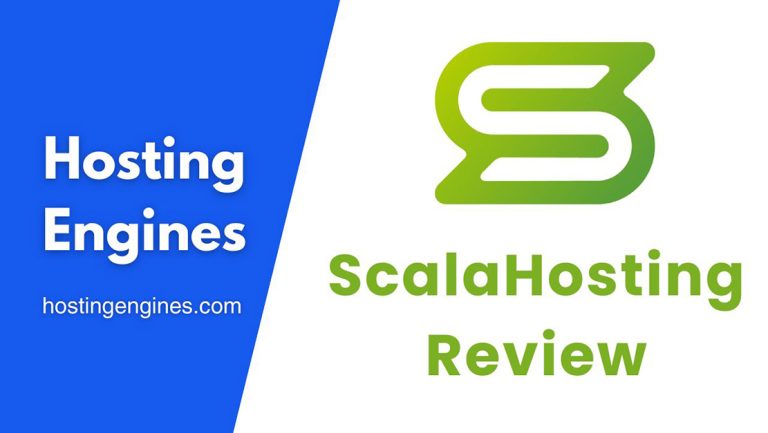In the process of managing and building websites, hosting has always been my top priority. It not only determines the speed, stability, and security of a website but also directly impacts user experience and my daily operational efficiency. When I first encountered hosting, I was confused by terms like shared hosting, VPS, and cloud hosting. Through continuous exploration, I gradually understood the essence of hosting and how to choose the right solution according to different needs. Today, I want to share these experiences, hoping to help others avoid detours when selecting hosting.
1. The Essence of Hosting: More Than Just “Space”
In simple terms, hosting is the act of storing website files in a location accessible to anyone over the internet. Traditionally, hosting was seen as merely “space,” but through long-term practice, I realized that hosting means much more.
The core value of hosting lies in:
- Stability: Websites remain online 24/7 without interruptions due to hardware or network issues.
- Performance: A good hosting environment optimizes resource allocation and improves page loading speed.
- Security: Hosting services provide multiple layers of protection against attacks and data breaches.
- Time-saving: By entrusting server maintenance, network management, and backups to professionals, I can focus more on content creation and business optimization.
From my experience, hosting is not just technical support but also a tool for efficiency. Once, during a major event, I tested peak traffic on my website. Without hosting’s automatic resource allocation and performance optimization, my site could have crashed. Hosting allowed me to get through the peak smoothly.
2. Main Types of Hosting and Their Features
There are many types of hosting, each with its advantages and suitable scenarios. I have summarized my experiences as follows:
Shared Hosting
This is the most basic type. Multiple websites share the same server resources, including CPU, memory, and storage.
Advantages: Low cost, quick setup, easy to operate.
Suitable for: Personal blogs, small business websites, or beginners.
Disadvantages: Limited performance, can be affected by other websites on the same server.
VPS Hosting
VPS is an upgraded version of shared hosting. Through virtualization, a server is divided into multiple independent environments, each with its own system and resources.
Advantages: High flexibility, customizable configuration, stable performance.
Suitable for: Growing small to medium websites or users with technical skills.
Disadvantages: Higher cost than shared hosting and requires some maintenance experience.
Dedicated Hosting
A dedicated server is a physical server fully dedicated to a single user.
Advantages: Powerful performance, highly customizable, secure.
Suitable for: Large websites, enterprise portals, e-commerce platforms, or high-performance applications.
Disadvantages: High cost, complex maintenance, requires technical knowledge.

Cloud Hosting
Cloud hosting is based on distributed server clusters and does not rely on a single physical server.
Advantages: Elastic resources, high availability, automatic bandwidth and compute scaling.
Suitable for: Websites with fluctuating traffic, rapidly growing business sites, or applications needing high availability.
Disadvantages: Price fluctuations, some features are complex, requires understanding of cloud services.
Managed Hosting
Managed hosting provides server resources while the provider handles all operational tasks, including system updates, backups, security, and database optimization.
Advantages: No technical skills required, time-saving, almost all-inclusive.
Suitable for: Users who do not want to spend effort on technical maintenance.
Disadvantages: Relatively higher cost, but the saved time and effort make it worthwhile.
3. The Importance of Hosting Security and Performance
Through long-term use, I realized that security and performance are the core criteria for evaluating hosting quality.
Security
Hosting security protects website data and prevents user information from being compromised. Excellent hosting services typically provide:
- Automatic SSL encryption
- Daily backups and one-click restoration
- Firewalls and DDoS protection
- Malware scanning and removal
Once, one of my small sites experienced a malicious traffic attack at night. The hosting service automatically blocked the attack and generated a report, requiring no extra effort from me. This experience made me deeply appreciate the importance of hosting security.
Performance Optimization
Website loading speed directly affects user experience. Hosting services enhance performance through hardware optimization, caching mechanisms, web server optimization, and CDN integration.
I tested the same website on shared hosting and managed VPS. The VPS loaded almost twice as fast, and visitor engagement increased significantly. Hosting, I realized, is not just storage; it is a guarantee of performance.
4. How to Choose the Right Hosting
When selecting hosting, I usually consider the following dimensions:

Type of Needs
- Personal blogs or small websites: Shared or basic hosting is sufficient.
- Small to medium businesses or websites with growing traffic: VPS or cloud hosting is more suitable.
- Large projects or e-commerce platforms: Dedicated servers or managed VPS are optimal.
- Limited technical experience: Managed hosting is the easiest choice.
Budget Considerations
Hosting prices vary widely, from a few dollars per month for shared hosting to hundreds for dedicated servers. Choosing requires balancing performance and cost.
Security and Backup Capabilities
For business websites, selecting hosting with automatic backups, SSL encryption, firewalls, and DDoS protection is crucial.
Scalability
Website growth may exceed expectations, so elastic resources and upgrade options are essential. I prioritize VPS or cloud hosting with easy scalability.
Provider Reputation and Support
Websites need stable technical support and reliable providers. Quick response and trustworthy service help avoid potential risks.
5. My Experience
From shared hosting to VPS, then to cloud hosting and managed services, I gradually realized that hosting is not only a technical requirement but also an efficiency tool. Choosing the right hosting keeps websites stable and saves significant time and effort.
For me, the value of hosting lies in:
- Keeping the website online without frequent troubleshooting
- Providing security to prevent data loss and attacks
- Enhancing performance for a smoother user experience
- Saving time and effort, allowing focus on content and business
I recommend that anyone planning to build a website clarify their needs, budget, and technical skills before selecting hosting. Then, consider the provider’s security, performance, and support. The right hosting ensures smooth operation and makes the entire website management process easier and more efficient.
Ultimately, I see hosting as a long-term partner. It not only stores website files but also takes responsibility for security, performance, and maintenance behind the scenes, allowing technology to truly serve me.













+ There are no comments
Add yours